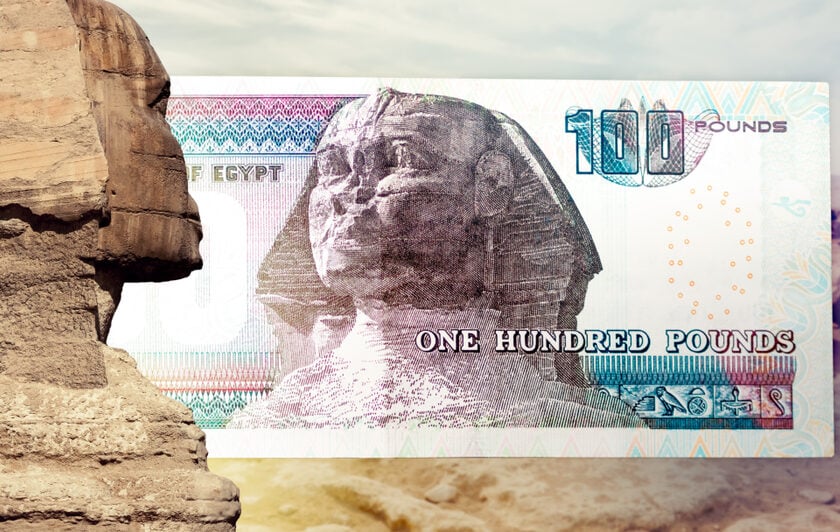The Research Department of HC Securities and Investment in Egypt expected the Central Bank of Egypt to raise interest rates by 200 basis points at its meeting scheduled to be held on Thursday.
The Monetary Policy Committee of the Central Bank of Egypt decided, in an emergency meeting held on March 21, to raise the interest rate by 100 basis points after keeping it unchanged for ten consecutive meetings, following the Federal Reserve’s decision in March to increase the interest rate by 25 basis points.
“Inflation figures for April came in higher than our estimates of 12.3 percent and the median estimate of analysts in a Reuters poll of 11.8 percent, driven by an increase of 48.8 percent on an annual basis in the prices of fruits and vegetables, while the prices of bread and cereals increased by 28.5 percent on an annual basis,” said Monet Doss, senior macroeconomic and financial services analyst at HC, quoting data from the Central Bank of Egypt and the data of the Central Agency for Public Mobilization and Statistics.
“We believe that there are several factors that led to food price inflation, including the seasonal increase in demand during Ramadan, the devaluation of the Egyptian pound by 18 percent since March 21, and the increase in global prices in the wake of the Russian-Ukrainian war.”
Doss continued: “Although food prices may calm down relatively next month as demand balances after Ramadan, we expect food prices to be the main driver of our expected average inflation at 14 percent over the remainder of 2022 due to weak purchasing power resulting from lower currency levels (as revealed by the April PMI in Egypt at 46.9) is directing most of the demand to basic foodstuffs.”
“On the other hand, we believe inflows benefiting from the price differentials are necessary at this stage to support Egypt’s net foreign reserves. However, it will be difficult for Egypt to attract them, given the massive selling in emerging markets by foreign investors.”
“We believe that it is still weak with only 3-4% coverage ability of government treasury bills offerings for 9 and 12 months from 66 percent to only 78 percent for shorter terms (in the offerings that took place from April 19 until now),” According to Doss.
She explained that in May, the Federal Reserve raised the interest rate by 50 basis points, which raised the fixed yield of one-year Treasury bills to 1.99 percent, compared to 1.34 percent in March.
“Accordingly, we expect pressure on the 12-month treasury bills to increase to 16.5 percent-17.0 percent, close to the 17.4 percent average of the first half of 2019 when inflation averaged 12.9 percent and corresponding to the average bond yields. The 12-month US Treasury is at 2.39 percent.”
Doss expected “larger outflows from the market due to more imports of production inputs and raw materials (after being recently exempted from letter of credit requirements) and given our estimates of the current account deficit for the fiscal year 21/22 projected at 4.0 percent of GDP.”
Excluding the Central Bank, the net position of the Egyptian banking sector’s foreign currency liabilities shrank to $7.04 billion in March, compared to $11.8 billion in February.








